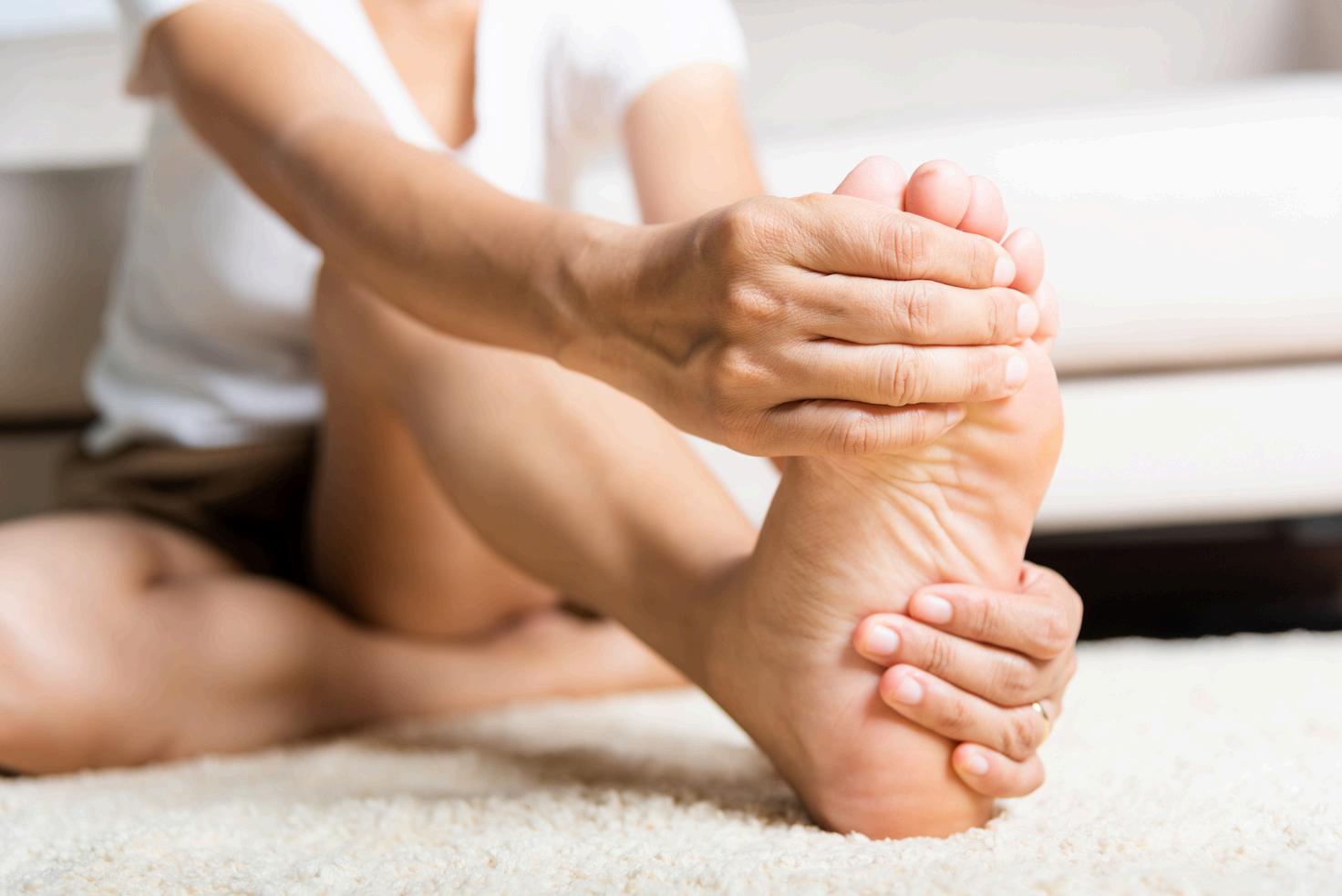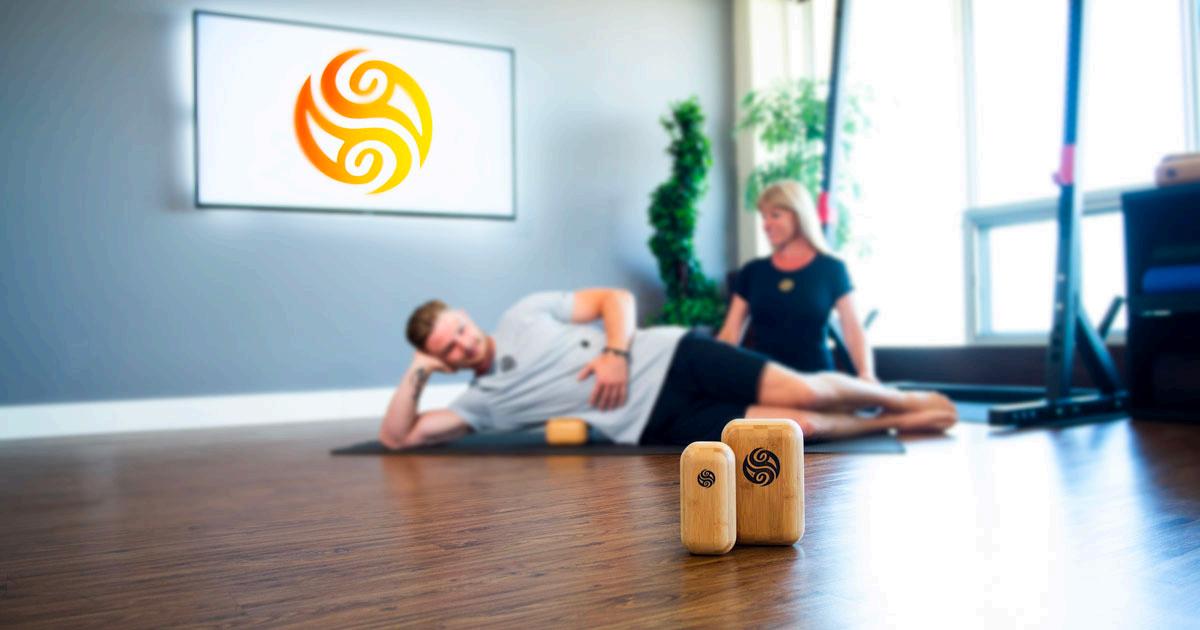The Ultimate Guide to Fascia
The Benefits of Fascia Decompression for Pain, Illness, Aging and Trauma












No matter where you are on this journey, you can support efficient circulation through understanding how to care for your fascia -- your body’s largest organ.
This variation would be used for less copy...debilitating, especially for the diabetic. What may start out as plantar fasciitis, or other painful scenarios, can lead to infections and possible amputations. This can be very scary and detract from living a fulfilling life.
Knowing how to support postural foundations, and send blood to all cells in the body, is the focus of Fascia Decompression, and an amazing benefit for those struggling with issues from diabetes.
Loss of blood flow to the feet and resultant foot pain is incredibly debilitating, especially for the diabetic. What may start out as plantar fasciitis, or other painful scenarios, can lead to infections and possible amputations. This can be very scary and detract from living a fulfilling life.

However, there is great news.
No matter where you are on this journey, you can support efficient circulation through understanding how to care for your fascia -- your body’s largest organ.
This variation would be used for less copy...debilitating, especially for the diabetic. What may start out as plantar fasciitis, or other painful scenarios, can lead to infections and possible amputations. This can be very scary and detract from living a fulfilling life.
Knowing how to support postural foundations, and send blood to all cells in the body, is the focus of Fascia Decompression, and an amazing benefit for those struggling with issues from diabetes.
Loss of blood flow to the feet and resultant foot pain is incredibly debilitating, especially for the diabetic. What may start out as plantar fasciitis, or other painful scenarios, can lead to infections and possible amputations. This can be very scary and detract from living a fulfilling life.

However, there is great news.
No
matter where you are on this journey, you can support efficient circulation through understanding how to care for your fascia -your body’s largest organ.
Adhesions, or blockages to the body’s flow, occurs from the fascia responding to gravity’s pull, combined with incorrect alignment. To keep you from tipping off balance, scarring develops between the layers of fascia to create stability. This comes at the cost to optimal blood flow. As the feet are the furthest distance for the heart to send blood, they are the first to experience issues.
Knowing how to support postural foundations, and send blood to all cells in the body, is the focus of Fascia Decompression, and an amazing benefit for those struggling with issues from diabetes.
Then there’s

In 2023, an estimated 20% of adults worldwide experience chronic pain. Most of us are currently in pain
Autoimmune diseases are also on the rise with about 4% of the world’s population diagnosed with at least one autoimmune disease.
In the U S , that number may be close to 8 percent and experts say these numbers are increasing every year. 2
Hormone Dysfunction
Infertility & Early Menopause
Food Sensitivities
Sleep Issues
Gut Dysbiosis
Anxiety & Depression
Suppressed Trauma and the list goes on.
It seems like no one is safe from some form of pain or disease.
Even children are suffering from structural issues and conditions like obesity at younger and younger ages, and no amount of nutrition education or restricted dieting is putting this train back on its tracks.
And that’s where the paradox lies.
When you are sick or in pain, it’s exponentially more difficult to do things like exercise or think about eating the right things.
For instance, your doctor might tell you that, in order to get relief from chronic knee pain, you should walk more. But you’re in far too much pain to even think about walking.

So, where do you go from there?
Here’s the Truth: You can be doing everything “right” – an antiinflammatory diet, movement, stretching, and good sleep hygiene, but if you’re not addressing your fascia system, then you’re not getting adequate nutrients and oxygen to your cells: the key drivers of all function in the body.
Conversations surrounding nutrition, stress, and too much screen time are all valid. 2
But the foundation of real recovery from pain, illness, and even mental-emotional issues actually lies in your fascia.
What you are about to read has changed my life
and the lives of thousands of people I’ve worked with. And everyone can use this work. Whether or not you’re in pain. Whether or not you’re sick. It’s worked on children, the elderly, the sick and well – even pets!
Read on to learn the truth about the fascia system and how you can unlock your flow through some simple daily practices.
 AUTHOR DEANNA HANSEN
AUTHOR DEANNA HANSEN

Fascia has become a bit of a buzzword in recent years.
From rollers, balls, and plastic tools that promise to melt cellulite to specialty fascia-focused massages – this mysterious body system has been touted as the key to anti-aging, pain relief, muscle building, better brain function, and much more.
Here’s the truth… all of these things are accurate.
Unfortunately, the general understanding of fascia, how it works, and how to move “stuck” fascia is largely misguided.
Your fascia system is an extensive network of connective tissue that makes your body into a continuous, flowing unit capable of action and sensation. Your fascia is everywhere in your body, innervating muscles, blood vessels, nerves, and organs. Your bones are even made up of fascia! It might be hard to imagine, but fascia connects everything, providing structure, making movement possible, and helping the different parts of your body function together.

When your fascia is healthy, it’s flexible and stretches with you.
When it’s dehydrated and sticky, it restricts movement, causing pain, holding trauma, and crunching and collapsing your body in on itself, making the flow of nutrients, oxygen, and energy impossible.
How can it be that this one part of your body is so integral to every system yet is almost never mentioned by prominent physicians and physical therapists?
Fascia has a long history of being severely misunderstood. For decades, doctors and scientists considered it totally superfluous to function. They often thought of it as filler tissue that just got in the way of more important organs.
Today, it’s considered a critical sensory organ on its own, and the more we learn about it and the more research we have, the more incredible it becomes.
Fascia is the network that creates connection and communication between the trillions of cells in your body.

Like skin is to the body, fascia is the “skin” to your cells. Largely made up of collagen and elastin (the proteins that make up the connective tissue), your fascia provides stability, form, mobility, and function.
We are not solid but, in fact, a fluid matrix that can be manipulated under the constant pressures of life’s forces. The most notable is gravity as the driving force combined with unconscious posture when sitting, standing, and doing repetitive movements, for example.
All of this pressure (and poor habits) takes your cells out of alignment. And it’s when the cells migrate away from their rightful positions that pain, aging, and disease occur.
When cells are in correct alignment, they have optimal space. Space allows for nutrients and oxygen to get into the cells and waste to be removed. If optimal space is maintained, there is no stress on the body, and the cells remain youthful and healthy.
And that’s the secret – we have to maintain alignment of the cells.

One of the best ways to picture what’s going on inside your body is to take it down to the cellular level.
Every cell in your body is a living, breathing, complex organism with an entire universe inside of it.
The surface area of the cell is key – and the more compacted or dehydrated the cell (i.e., compressed and frozen), the less surface area it has for the absorption of nutrients and release of toxins and waste.
Our goal is to plump up the cell and create more surface area. The cell will take care of itself as long as it has space and flow – and this comes from the breath and proper alignment.
The body is made up of skin, bones, organs, and tissues – in the same way that floors, walls, and inner workings make up a building. And just like a building, we have communication systems and pathways to carry electrical signals, move fluids, bring in nourishment, remove waste, and control the temperature within through heating and cooling systems.
The obstructions are what we call adhesions.
These blockages form through the layers of fascia, hooking onto the bone and creating false stability where there was none.

If everything is working well, there’s efficiency, and the people inside the building (or, in our case, the cells inside our bodies) can perform with ease.
When cells are in alignment, energy, nutrients, and oxygen are able to flow throughout the body, moving in spirals and waves just as nature intended. However, obstructions stop flow in its tracks, leading to barriers in flow and, eventually, pain and illness.
Adhesions occur for many reasons throughout the years, from injuries to poor posture to structural imbalances – even from emotional traumas. Think of adhesions like scar tissue that blocks blood and oxygen flow and the ability to clean the tissues.
Releasing these blockages and finding flow in the fascia is at the root of the practice you will learn about in this book.
Fascia is the response to life’s forces, gravity being the most obvious that’s constantly driving us down toward the earth. Combine this with unconscious posture and superficial chest breathing, and over time, pain, structural issues, and illness begin to settle in.
Fascia compression is the reason we become shorter, wider, and more square as we age, regardless of how much weight we gain or lose.
That’s why you can see an older person who has kept a slimmer or more muscular figure, but their bone structure looks stalkier or more square. That’s gravity at work compressing the fascia, and the bones, tissue, and organs follow suit. Cellular restriction also affects vital organs and organ systems, leading to things like hormone imbalance, thyroid issues, food sensitivities, and so much more.
While massages feel good, most massage strokes stay on the surface and won’t be able to break up a lifetime of deeper adhesions. The secret to real transformation lies in moving through the layers and getting to the root of the issue.
We need to release the hook of fascia that has adhered to the bone over time (which seals with the force of up to 2,000 pounds per square inch).
By decompressing fascia adhesions, your body will untie and release the seal of decades-old adhesions so energy and blood flow can finally move more freely throughout the body.

Increased blood flow and oxygen to cells & tissue
Improved body symmetry and alignment
Better muscle tone
Faster recovery
Reduced appearance of stretch marks and cellulite
Scar tissue breakdown
Reduced risk of injury
Reduction and release of pain & tension
Improved athletic performance
Detoxification to help mitigate and prevent illness & disease
Increased quality of life
Management of stress and anxiety
Trauma and emotional release
So much more...
Fascia connects to and affects absolutely everything in the body. As such, fascia responds to life’s forces, giving us information and awareness about what we are doing right and what we are doing wrong.

Many of my clients and students know the importance of movement, stretching, and other wellness practices like getting enough sleep.
But their days are mostly filled with sitting and standing in the wrong ways, shallow chest breathing, and heavy workouts followed by hours of relative inactivity. This isn’t to mention the inevitable effects of gravity constantly compressing our bodies from the moment we are born.
All of this leads to sticky fascia – tight, restricted, dehydrated, and compressed tissue that constricts posture and actually compacts and compresses organs, ultimately restricting blood flow to cells and tissues.
Read on for a few other things that can negatively impact the fascia system, leading to poor posture, insufficient breathing, and a compressed, compacted body.

We’ve all heard that “sitting is the new smoking” – the concept that sitting too much increases your risk of chronic health problems, such as heart disease, diabetes, and some cancers.
While a sedentary lifestyle is a huge problem in modern society, compressed, sticky fascia is at the real root of the issue. If your structural and cellular alignments are off, then it doesn’t matter if you are sitting, standing, walking, or exercising – it’s all the “new smoking!”
Of course, postural alignment is still important, so things like tech neck (looking down at your phone), walking or standing out of alignment, repetitive movements at work or in sports – all of this can contribute to stuck fascia, pain, and illness.
Scar tissue and adhesions may seem like an inevitable and harmless part of injury and surgeries. However, scars are some of the most common causes of interference in your system. The damage disrupts function by binding the tissues and blocking blood and oxygen flow to the area.
This can create abnormal signaling throughout the autonomic nervous system, which is then transmitted throughout the body. That’s why some people experience pain, shifts in alignment, and postural collapse nowhere near the scar tissue. Fascia Decompression can help break up scar tissue and encourage flow to the area, which can result in miraculous changes throughout the entire body.

Just like there are physical scars that trap energy and emotions, there are internal “scars” of pain, stress, fear, and unprocessed trauma. Research confirms that your body is constantly adapting to your energy, emotions, and beliefs – all of which can get stored in your tissues.
For instance, we know that stress can cause a cascade of hormones and chemical byproducts that can change how different systems in the body work, particularly the fascia.
Animals instinctively shake out the stress and trauma that we as humans tend to keep inside, holding onto it, leading to a body that becomes frozen. At that point, we are literally living every day in survival mode, which translates in the body as compression – sticky, dense, and collapsed with no space for nutrition, oxygen, or blood flow to get to the cells.
Fascia Decompression creates space within and around the cells so pain, trauma, and stress can be released without judgment or fear. You simply do the exercises and let the feelings come up and out. Then, you can reprogram your thoughts and energy at a new level.
The global beauty industry is worth about $571.1 billion.
The wellness industry – weight loss, supplements, and health optimization – is worth about $4.37 trillion worldwide.
571.1 billion
4.37 trillion
And still, regardless of the thousands of dollars spent, we all struggle with sagging skin, wrinkles, fine lines, age spots, broken capillaries, and unwanted fat as we age. That’s because when the body is compressed, the cells are shifted out of alignment. They become compacted and don’t get the oxygen and nutrients they need to thrive.

If creating cellular alignment can help you manage chronic pain and bring your body back to balance, then it’s safe to say there are anti-aging benefits as well. Fascia Decompression gives your cells the space they need to expand. Like a fully rounded balloon, every cell is fully oxygenated, nourished, and almost defying gravity. Then this translates to the skin and structural tissues as well.
There’s not one person on the planet that doesn’t experience some degree of fascia compression. Even children are developing structural issues and signs of compression at alarmingly young ages.

It’s impossible to list every sign and symptom, but here are some of the most common:


Loss
wager’s Hump
ulite
e Fat
daches and Migraines
tica
tar Fasciitis
ions and Other Foot Issues
cose Veins
Heart Valve Dysfunction
Hypertension
Dupuytren's Contracture
Carpal Tunnel Syndrome
Frozen shoulder
Acute and Chronic Pain: This can happen anywhere in the body, but the most common occurs in the neck, back, legs, hips, and knees
Signs of Aging including sagging skin, fine lines, wrinkles, discoloration, and puffiness
Excess skin, adipose tissue, and sagging under the chin, also known as “turkey neck” and excess of adipose tissue around the waistine also know as “ spare tire”
Loss of senses: vision, hearing, sight, and smell
Gut Issues like gas, bloating, constipation, and trouble emptying
Reproductive issues in both men and women including prolapse, bladder leakage, erectile dysfunction, and infertility
Symptoms of Menopause: hot flashes, brain fog, sleepless nights, irritability, and other mood issues
And more...
Alzheimer’s
Endometriosis
SIBO, Leaky Gut, and other gut Issues
Asthma
Allergies
Anxiety and panic attacks
Depression
Fatty Liver Disease
Chronic inflammation
Infertility
Scoliosis
Diabetes
Autoimmunity
Thyroid disease
Hormone imbalance or dysfunction
Fibromyalgia
MS (Multiple Sclerosis)
Parkinson’s
Dementia
Everything truly does come back to the fascia system.
Any ailment, whether physical, mental-emotional, a diagnosed condition or idiopathic pain in the body – it all comes back to fascia adhesions, congestion, and a lack of flow.
The good news? You have the power to create space, heat, and flow in the body. And you can start today.
The best part about healing through Fascia Decompression is that the methods are simple.

Here are just a few of my favorite ways to promote fascia health from the comfort of your own home.

Imagine being able to get the benefits of a really good deep tissue massage every day, from your living room. It’s time to introduce our proprietary athome Fascia Decompression method that’s changing lives around the globe: Block Therapy.
Block Therapy was born out of my own exploration of the fascia system after years of performing deep tissue work on myself and my clients.
There are three pillars to this work.
1 2 3
Creating space in the body through melting fascia adhesions with the Block Buddy.
Inflating space and creating heat through proper diaphragmatic breathing.
Maintaining space through proper posture, and alignment.
You can experience Block Therapy today (using only a rolled-up towel!) with the Block Therapy Sampler Program

Your diaphragm is like the body’s furnace – a pump moving heat and energy throughout the entire body. However, most of us aren’t breathing properly, only taking shallow breaths in the upper chest. When we don’t breathe correctly, oxygen absorption is affected leading to depletion of oxygen for the cells. This results in a compression in the fascia causing the cells to become misaligned.
Think about your car in the winter. When it’s cold out, you have to warm up the car so it can run properly. In the summer, when it’s already warm, that step is unnecessary. Your body acts much in the same way, working best when it’s warm. And breathing diaphragmatically is like keeping your body’s engine running all the time, encouraging optimal oxygen absorption and moving waste out of the lungs (and the cells).
We all know that exercise is good for us. However, I find that there’s a caveat to this. For years, I pushed my body to the point of exhaustion, excelling in sports, lifting heavy weights, and running until my legs gave out.
Now, I practice more intentional movement and recommend that for the people I work with as well. That means incorporating workouts like yoga, Pilates, Tai Chi, Qi Gong, and walking – movements that you can do consciously while encouraging symmetry in the body.


In order to keep your fascia healthy, it’s critical to get plenty of clean water (I love spring water) and adopt a clean, organic, anti-inflammatory diet. This looks slightly different for everyone, as it’s possible to maintain a healthy diet whether you’re an omnivore, vegetarian, vegan, or gluten-free.
You can also promote ideal posture every time you chew! Not only is mindfully chewing your food better for digestion but making sure to chew evenly on both sides creates symmetry and can help with strength and alignment
Once you begin Block Therapy, you will begin to notice your body in different ways. All of a sudden, you will become aware of how you walk, stand, sit, drive, and sleep – even how you chew. And this is a good thing.
The more aware you become, the more you can begin to integrate diaphragmatic breathing and strengthen your body in correct alignment all of which are outlined in great detail in the Block Therapy Programs!

Pain, fear, sadness, irritation, frustration, and all forms of stress are often held in the tissues. Some experts believe that emotional release is so integral to pain relief that it should be a part of every pain management protocol.
Emotional release can look like therapy, journaling, breathwork, somatic movement, and more. It’s also important to regularly practice things like forgiveness, gratitude, living with purpose, and being in service to others. 6
Pain, fear, and stress can also be triggered by unhealthy relationships, work environments, and even what you read, watch, and listen to (like the news). It turns out that you aren’t just what you eat – you’re also what you think, consume, and how you breathe.

Typically, most people will feel more lifted, more mobile, and like they can breathe more deeply after the first or second session of Block Therapy.
Increased blood flow
Changes in hormones
Menstrual cycles
changing (or coming back)
Emotions coming up
Rashes
Changes in pain
Weight loss
Changes in posture
Changes in sleep
And more
What we are really looking for in anyone’s practice is change. As long as you are experiencing some change, whether it’s perceived as good or more challenging, then we know things are moving. And that means you are doing it right!
A popular way to describe fascia is like “cling wrap,” clinging to bones and tissue. This is a wildly reductionist view of the fascia system, which can get stuck to bones and other tissues – but that actually means it’s not working properly!
Healthy fascia has movement and flow and isn’t stuck or compressed. This is why some techniques and tools don’t provide results – they only work superficially and don’t target the deeper layers of fascia.
When you apply topical solutions or use modalities that focus on the surface of the tissue (i.e. rolling), you are not getting to the root of the issue – deep, tough adhesions that are manipulating the fascia, making it impossible for your cells to get the sufficient nutrients and oxygen they need.
Real melting requires time, heat, and alignment, so when you are intentionally lying on the Block Buddy and moving through the different layers of fascia, you are reaching the deeper adhesions through pressure, breathing, and heating the body from inside and outside to create a profound and lasting effect. This kind of fascia work can help with the appearance of cellulite.

It’s a common misconception that spottreating pain or injury with ice or cold therapy is a good thing. However, all that’s doing is stopping the acute inflammatory process and freezing the fascia and other tissues. And this can lead to more adhesions and immobility in the tissue over time. While icing might get you some temporary relief from inflammation or pain, it’s usually short-lived.
Essentially, any injury — whether a broken bone or a tear in a tendon or muscle — creates a “gap.” The body’s natural response to that gap is to send healing nutrients, proteins, and oxygen to heal the tissue in that area (also known as acute inflammation).
If you support this process, you can actually rebuild the tissue. If you ice it and stop the inflammatory process, that gap will still get filled in, but the body will fill it with collagen (scar tissue), keeping the area stuck and frozen and creating other problems in the body.
To support the repair process and keep the fascia warm and flowing, it’s important to support the inflammatory process so the body gets the nutrients and oxygen it needs to rebuild the tissues. And you can get this with things like diaphragmatic breathing, stretching, Fascia Decompression, and warm or hot Epsom salt baths.
Most people are under the impression that we have no control over how we age. We are raised believing that infirmity, weakness, and disease are inevitable and that we have to gain weight and lose physical and mental function as we get older.
But that’s just not true. A higher metabolism isn’t reserved for younger people and bodybuilders. A high, functioning metabolism actually comes from working cells. Awakening previously blocked cells means they are not just working more efficiently; you are also burning energy at a higher cellular rate, aka, burning more calories – even at rest.

Many experts talk about inflammation as the root of all suffering and disease. While chronic inflammation is the basis for many illnesses, acute inflammation is a good thing. Inflammation is a natural physiological process that helps blood, nutrients, and oxygen flow to a site of injury so your body can begin the process of repair.
The problem is when inflammation begins to back up and become congested in the tissue. Like milk gone bad, it sours and can lead to additional damage to the surrounding cells and, eventually, adhesions, which then cause more inflammation. It’s a vicious cycle!
The answer lies in improving flow. The first step is to engage in proper diaphragmatic breathing; however, for this to happen, the adhesions that have blocked the diaphragm’s ability to work properly need to be melted from the ribcage so as to access this powerful plate of muscle. This is why we always focus first on the core and ribcage: to release the adhesions that are blocking the diaphragm’s ability to move up and down freely in the core so as to optimize this muscle's performance. Once we do and focus on strengthening this muscle, change happens quickly. As flow begins to improve, overall temperature increases and the stagnant inflammation awakens to its initial intention to heal.
It’s not hyperbolic to say… doing this work can completely change your life. From total structural and postural realignment to the disappearance of pain to shifts in energy, processing stuck emotion – Block Therapy is more than just deep tissue work.

And you don’t need expensive weekly sessions with a practitioner or to spend hundreds on biohacking tools to experience the benefits.
You can start Fascia Decompression TODAY from the comfort of your living room.
Block Therapy is an effective and powerful athome system that taps into the body's innate intelligence, creating space where time has taken it away. A bodywork practice that is meditation, exercise, and physical therapy all at once, Block Therapy can benefit anyone – from those with debilitating pain to elite athletes in as little as 15-30 minutes per day.
With these simple, step-by-step protocols, you will combine diaphragmatic breathing and deep tissue work to release adhesions and scar tissue in the fascia, oxygenating cells, rebuilding postural foundations, and, ultimately, releasing pain, aging, and dis-ease.

The Block Therapy Sample Program is a 9-Day Series where you will learn some of the basic principles of Block Therapy using a rolled-up towel as the tool. This gives you an understanding of Fascia Decompression, how it works, and the benefits of working on the body for as little as 15-30 minutes at a time.
You will get immediate access to videos to help you open flow to improve oxygenation to cells and strengthen posture and alignment.
GET IMMEDIATE ACCESS

Deanna Hansen is a pioneer in the field of Fascia Decompression for physical and emotional transformation and a best-selling author in the wellness space. With more than 20 years of hands-on clinical experience, Deanna created Fluid Isometrics™ and Block Therapy™, unique fascia-release techniques to help relieve chronic pain and dis-ease, encourage healthy detoxification, and reverse the aging process.
Deanna began her athletic therapy practice in 1995, finding incredible results for her clients but watching as her own health deteriorated. She felt inflamed and slow in her body and experienced a lot of the chronic pain and depression she was helping her clients release.
After years of carrying excess physical and emotional weight, including chronic panic attacks, Deanna made a life-changing discovery. During a particularly agonizing bout of anxiety, she intuitively pushed her hand into her abdomen. At that moment, Deanna’s life began to change.
Deanna realized that fascia is more than connective tissue providing internal structure it’s a highly sensitive network connecting organs, blood vessels, nerve fibers, and muscles. Over time, the fascia naturally compresses, resulting in pain, aging, and dis-ease. With targeted Fascia Decompression, these conditions begin to reverse, releasing stress, stagnation, trauma, and physical conditions.
Every cell in your body is interconnected through the fascia system. Understanding this is the key to unlocking the root cause of your pain and suffering.
When Deanna isn’t guiding thousands of eager students in the art of Fascia Decompression for optimal physical, mental, and emotional health, she’s writing best-selling books and sharing her life-changing expertise on other educational platforms.

[1] https://www.nih.gov/news-events/news-releases/nih-study-finds-high-ratespersistent-chronic-pain-among-us-adults
[2] https://www.nature.com/articles/d41586-021-01836-9
[3] https://pubmed.ncbi.nlm.nih.gov/33048774/
[4] https://www.forbes.com/sites/forbestechcouncil/2023/02/16/3-challengesholding-back-the-business-of-beauty/?sh=42ccd1d12d95
[5] https://www.statista.com/statistics/491362/health-wellness-marketvalue/#:~:text=The%20size%20of%20the%20wellness,trillion%20U.S.%20dollars%20 by%202025
[6] https://www.ncbi.nlm.nih.gov/pmc/articles/PMC3152687/
